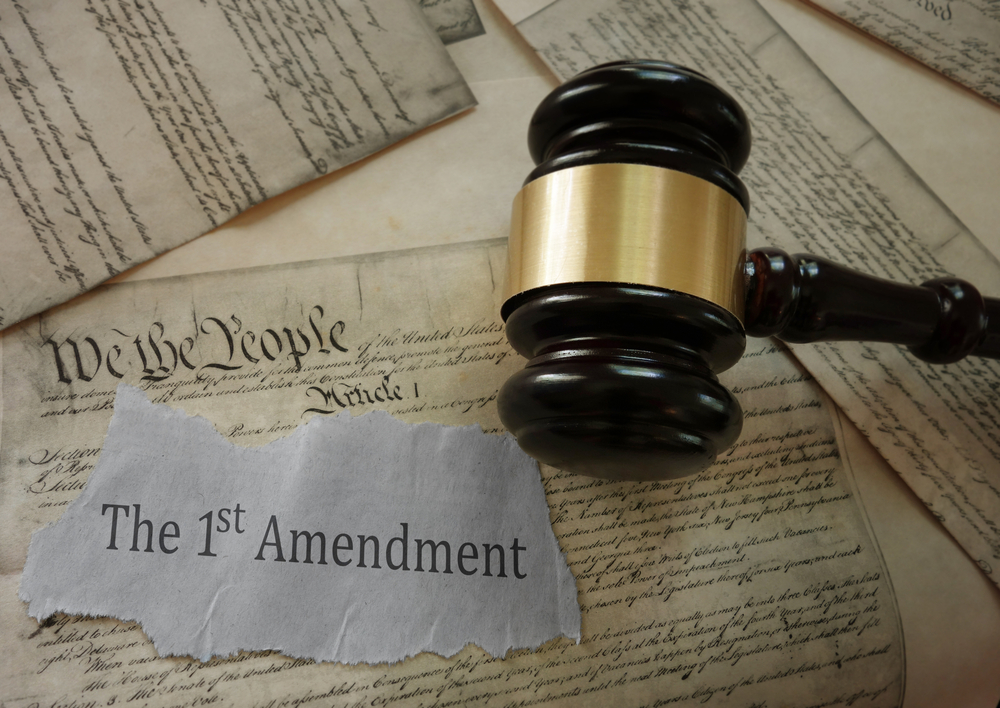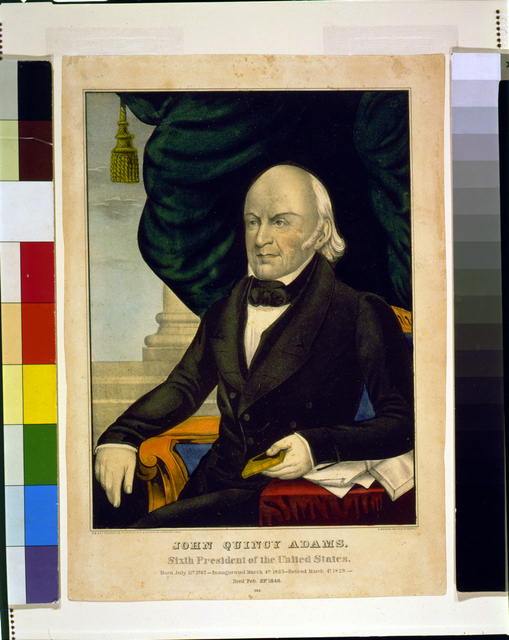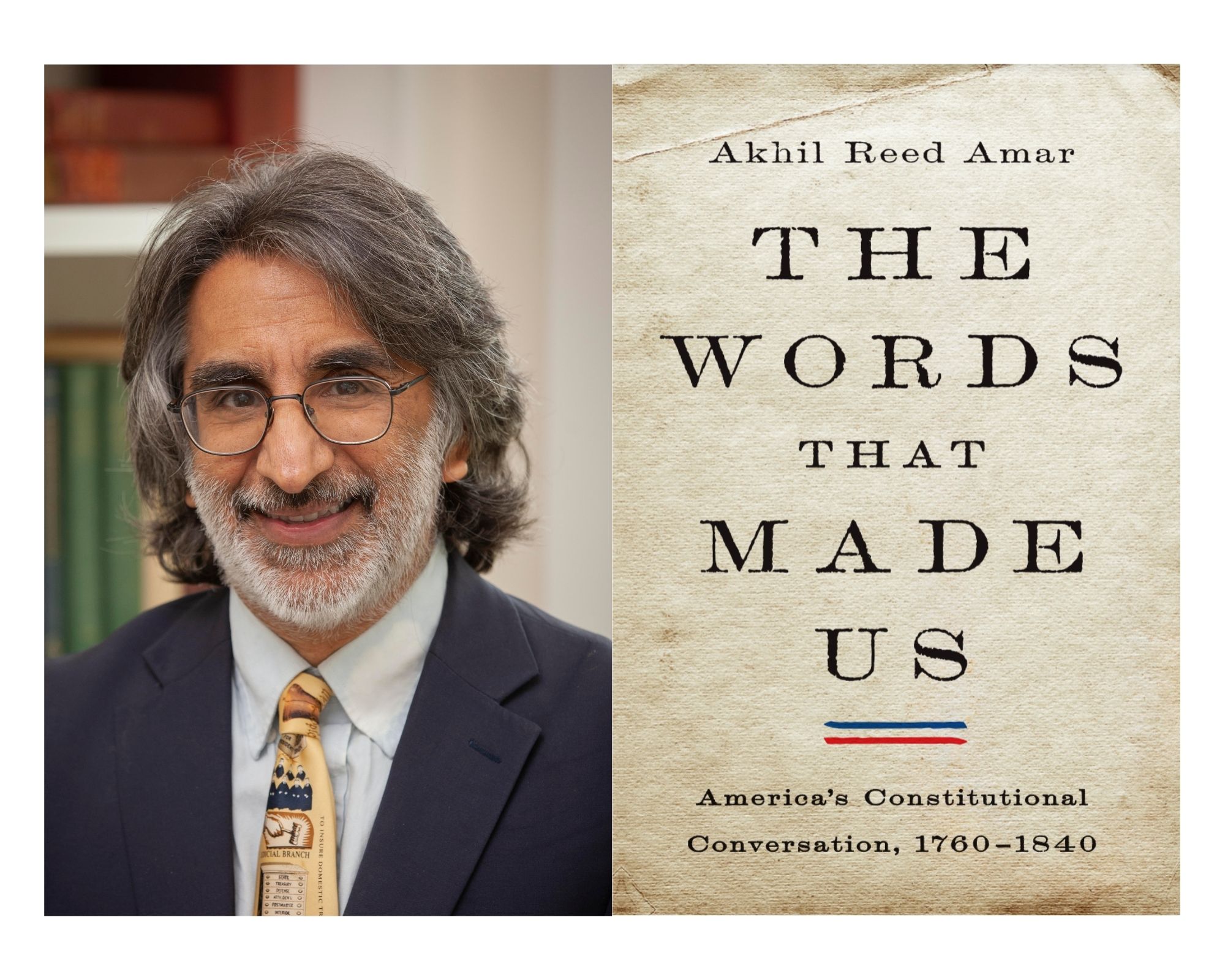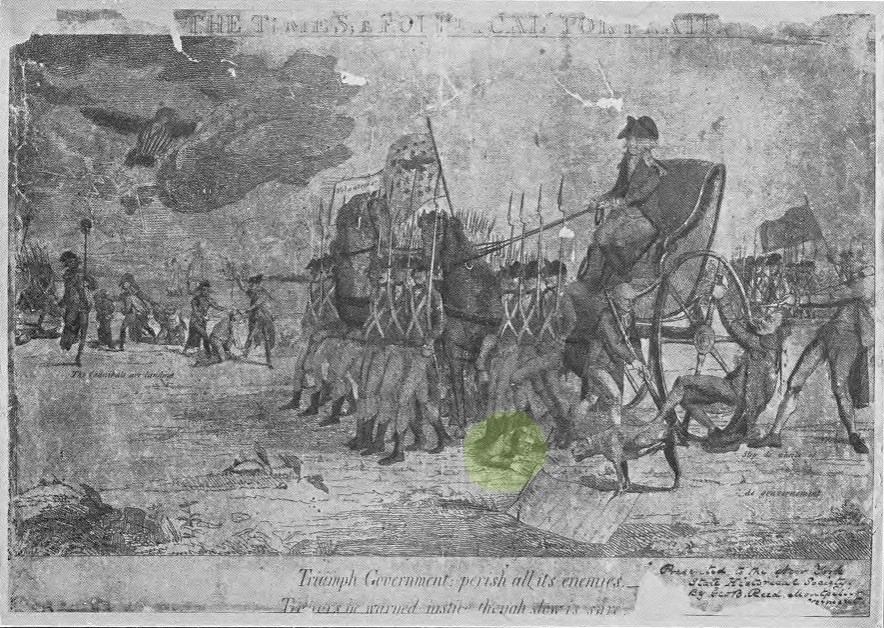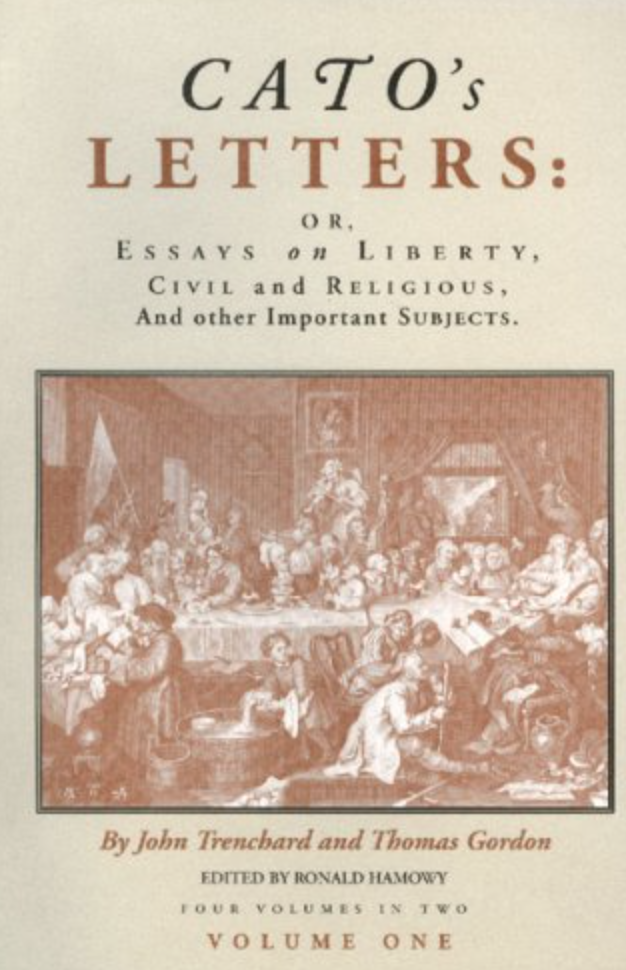By Professor Stephen D. Solomon, Editor, First Amendment Watch
The landmark decision of New York Times v. Sullivan brought an end to the reign of seditious libel in America. Seditious libel was the crime of criticizing government or public officials, and was long justified on several grounds. Criticism that brought public officials into disrepute could potentially lead to internal strife. And many legal commentators believed that the government could not act effectively unless the people had a good opinion of it.
Seditious libel originated in a statute passed by Parliament in 1275 that prohibited “any false news or tales whereby discord . . . may grow between the king and his people.” Falsity was a necessary part of seditious libel, but even true libels became part of the crime in 1606, thus subjecting people to penalties for any criticism of officials whether it was true or false. True libels were considered to pose a great threat to public officials because truthful criticism, including the revelation of malfeasance in office, was difficult for public officials to effectively counter.
Seditious libel came ashore in America as part of the English common law, and it was used against dissenters who opposed what they saw as wrongs committed by British officials. With so many Americans protesting against British authority in the decade before Independence, colonial juries came to ignore the crime and refused to indict or convict people for it.
Punishment for criticism of public officials was at odds with the system of self-governance created by the U.S. Constitution, which invested sovereignty in a people who had the responsibility to discuss public affairs and elect their own representatives. Even after ratification of the First Amendment, seditious libel continued in the United States and was the heart of the odious Sedition Act of 1798, under which the Adams Administration jailed more than a dozen of its critics. The Sedition Act, though, enshrined truth as a defense to a libel claim. What seemed on its face to be a libertarian advance turned out to be nothing of the sort—jailed critics of Adams had been prosecuted for their opinions, which are by their very nature incapable of being proved true.
The odious Sedition Act of 1798 expired on its own three years later, but versions of the legal action survived in many states. The New York Times was sued under an Alabama law that bore strong similarities to the Sedition Act of 1798, and Justice William J. Brennan Jr. wrote for a unanimous Court in striking it down. In doing so, the Court provided strong new protections for citizens criticizing public officials.
Central Meaning of the First Amendment
The Court declared that the central meaning of the First Amendment is vigorous criticism of the government and public officials. It purposely chose the strongest of words to describe the American idea of freedom of political expression—uninhibited, robust, wide-open, vehement, caustic, unpleasant, sharp, and attacks. Nobody could doubt the Court’s protection of debate and discussion, and its elevation of political expression over the value in reputation.
“Thus we consider this case against the background of a profound national commitment to the principle that debate on public issues should be uninhibited, robust, and wide-open, and that it may well include vehement, caustic, and sometimes unpleasantly sharp attacks on government and public officials.”
The Sedition Act of 1798 was a Violation of the First Amendment
The Court finally put an end to seditious libel. Although the Sedition Act of 1798 had expired in 1801, the Court nevertheless declared that it was unconstitutional, pointing out that
“the Act was vigorously condemned as unconstitutional in an attack joined in by Jefferson and Madison. In the famous Virginia Resolutions of 1798, the General Assembly of Virginia resolved that it “doth particularly protest against the palpable and alarming infractions of the Constitution in the two late cases of the ‘Alien and Sedition Acts,’ passed at the last session of Congress. . . . [The Sedition Act] exercises . . . a power not delegated by the Constitution, but, on the contrary, expressly and positively forbidden by one of the amendments thereto — a power which, more than any other, ought to produce universal alarm because it is leveled against the right of freely examining public characters and measures, and of free communication among the people thereon, which has ever been justly deemed the only effectual guardian of every other right.” 4 Elliot’s Debates, supra, pp. 553-554.
Madison prepared the Report in support of the protest. His premise was that the Constitution created a form of government under which “The people, not the government, possess the absolute sovereignty.” The structure of the government dispersed power in reflection of the people’s distrust of concentrated power, and of power itself at all levels. This form of government was “altogether different” from the British form, under which the Crown was sovereign and the people were subjects. “Is it not natural and necessary, under such different circumstances,” he asked, “that a different degree of freedom in the use of the press should be contemplated?” Id., pp. 569-570. Earlier, in a debate in the House of Representatives, Madison had said: “If we advert to the nature of Republican Government, we shall find that the censorial power is in the people over the Government, and not in the Government over the people.” 4 Annals of Congress, p. 934 (1794). Of the exercise of that power by the press, his Report said: “In every state, probably, in the Union, the press has exerted a freedom in canvassing the merits and measures of public men, of every description, which has not been confined to the strict limits of the common law. On this footing, the freedom of the press has stood; on this foundation it yet stands. . . .” 4 Elliot’s Debates, supra, p. 570. The right of free public discussion of the stewardship of public officials was thus, in Madison’s view, a fundamental principle of the American form of government
Although the Sedition Act was never tested in this Court, the attack upon its validity has carried the day in the court of history. Fines levied in its prosecution were repaid by Act of Congress on the ground that it was unconstitutional. See, e.g., Act of July 4, 1840, c. 45, 6 Stat. 802, accompanied by H.R.Rep. No. 86, 26th Cong., 1st Sess. (1840). Calhoun, reporting to the Senate on February 4, 1836, assumed that its invalidity was a matter “which no one now doubts.” Report with Senate bill No. 122, 24th Cong., 1st Sess., p. 3. Jefferson, as President, pardoned those who had been convicted and sentenced under the Act and remitted their fines, stating: “I discharged every person under punishment or prosecution under the sedition law because I considered, and now consider, that law to be a nullity, as absolute and as palpable as if Congress had ordered us to fall down and worship a golden image.” Letter to Mrs. Adams, July 22, 1804, 4 Jefferson’s Works (Washington ed.), pp. 555, 556. The invalidity of the Act has also been assumed by Justices of this Court. See Holmes, J., dissenting and joined by Brandeis, J., in Abrams v. United States, 250 U. S. 616, 250 U. S. 630; Jackson, J., dissenting in Beauharnais v. Illinois, 343 U. S. 250, 343 U. S. 288-289; Douglas, The Right of the People (1958), p. 47. See also Cooley, Constitutional Limitations (8th ed., Carrington, 1927), pp. 899-900; Chafee, Free Speech in the United States (1942), pp. 27-28. These views reflect a broad consensus that the Act, because of the restraint it imposed upon criticism of government and public officials, was inconsistent with the First Amendment.
Even Erroneous Statements Must be Protected
Truth was a defense to a libel claim. But James Madison and many other advocates of freedom of the press had argued that false statements were inevitable in the heat of political discussion and so truth did not provide enough protection for vigorous debate to take place. If false statements were not also protected in some way, people would engage in self-censorship to avoid the risk of error that could lead to a libel suit.
““That erroneous statement is inevitable in free debate, and that it must be protected if the freedoms of expression are to have the ‘breathing space’ that they ‘need . . . to survive . . . A rule compelling the critic of official conduct to guarantee the truth of all his factual assertions — and to do so on pain of libel judgments virtually unlimited in amount — leads to a comparable “self-censorship.” Allowance of the defense of truth, with the burden of proving it on the defendant, does not mean that only false speech will be deterred.Even courts accepting this defense as an adequate safeguard have recognized the difficulties of adducing legal proofs that the alleged libel was true in all its factual particulars. See, e.g., Post Publishing Co. v. Hallam, 59 F. 530, 540 (C.A. 6th Cir. 1893); see also Noel, Defamation of Public Officers and Candidates, 49 Col.L.Rev. 875, 892 (1949). Under such a rule, would-be critics of official conduct may be deterred from voicing their criticism, even though it is believed to be true and even though it is, in fact, true, because of doubt whether it can be proved in court or fear of the expense of having to do so. They tend to make only statements which “steer far wider of the unlawful zone.” Speiser v. Randall, supra, 357 U.S. at 526. The rule thus dampens the vigor and limits the variety of public debate. It is inconsistent with the First and Fourteenth Amendments.”
Erroneous Statements Will Be Protected Through Requirement that Public Officials Prove “Actual Malice”
The Court required public officials to prove not only that the defamatory statement was false, but also that it was published knowing it was false or with reckless disregard for the truth—that is, with a high degree of awareness of probable falsity. Thus, innocent falsehoods would be protected, and public officials would have a high bar to win a case for defamation.
“The constitutional guarantees require, we think, a federal rule that prohibits a public official from recovering damages for a defamatory falsehood relating to his official conduct unless he proves that the statement was made with “actual malice” — that is, with knowledge that it was false or with reckless disregard of whether it was false or not.”
Oyez New York Times v. Sullivan
Tags
